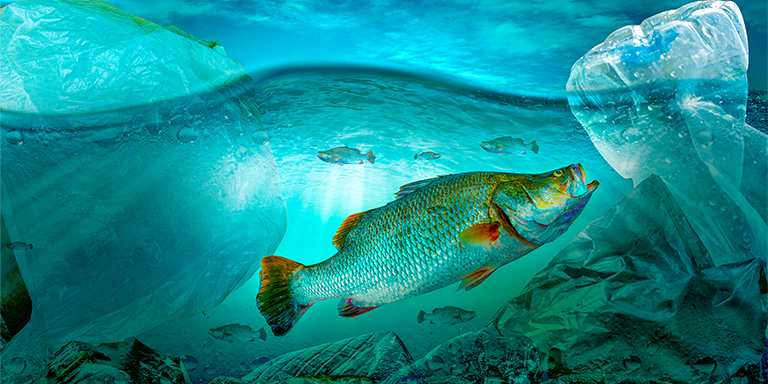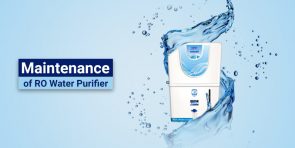Shocking Ways Plastic Pollution Affects your Health & Marine Life
Plastics have been a part and parcel of our lives. Starting from food packaging to fabrics, plastic can be found in almost everything. However, did you ever give a thought to what happens to the plastic items that we discard? The plastic items that we discard eventually find their way into the oceans. Though plastic pollution is a serious issue, the use of plastics is still on the rise as many of us are not ready to give up the convenience of using these products. Considering the serious consequences of plastic pollution, the theme of World Oceans Day, celebrated on 8th June every year, is to prevent plastic pollution and encourage solutions for a healthy ocean. On the occasion of World Oceans Day, the blog highlights how plastic pollution in oceans affects marine as well as human lives.
So, How Much Plastic do we dump in the Oceans?
Approximately 8 million plastic waste is dumped into the oceans every year. The dirty beaches, which were places of scenic beauty in the past, are a glimpse of the harm that we are doing to the oceans. Out of the total plastic waste, 60% of the waste is dumped by India. We produce approximately 56 lakh tonnes of plastic waste every year. Plastic waste accumulates in areas where the oceans create gyres, a type of circular current. The circular current created by oceans sucks in floating debris resulting in pollution.

When these plastic products reach the water bodies, it causes irreparable damage to both marine and human life. The chemicals present in the plastic waste are released not only into the water bodies but also into the atmosphere. The chemicals directly enter the food chain as these chemicals from water easily contaminate fish, which are eventually consumed by humans.
How Does Plastic Affect Human Health?
The plastic products that we dump spread throughout the oceans. Not only do the toxins in the plastic affect the oceans, but the plastic products also act as a sponge and soak up other toxins present in the oceans. Plastic pollution in oceans can affect human life in a number of ways. Toxins such as lead, mercury, or cadmium are found in fish in the ocean. The contaminated fish are ingested by humans, which can lead to serious health problems. Some of the toxins present in plastics are directly related to health issues such as cancer, birth defects, childhood development issues, and problems with the immune system. In addition, the presence of BPA and phthalate used in water bottles and food packaging materials can interfere with hormonal functions.
How Does Plastic Affect Marine Life?
Marine animals such as seabirds turtles, dolphins, and seals face the danger of entangling in plastic bags and other dangerous debris mistaking them to be food. The reason is marine animals can’t differentiate between plastic bags and their food items. When marine animals consume these toxic items, it can lead to internal blockages and death. Large pieces of plastic materials can damage the digestive system of marine animals such as whales and seabirds.
Protecting Your Health and Marine Life from Plastic Pollution Effects
Protecting your health and marine life from the harmful effects of plastic pollution is crucial for a sustainable and healthy future. Plastic pollution poses numerous threats to both ecosystems and human well-being. Here are some steps you can take to mitigate its impact:
Reduce Plastic Consumption:
Minimize single-use plastics in your daily life. Carry reusable bags, bottles, and containers. Opt for products with minimal plastic packaging.
Proper Disposal:
Dispose of plastic waste responsibly. Recycle as much as possible and follow local recycling guidelines. Avoid littering, as plastic waste can end up in water bodies.
Support Bans:
Advocate for and support local and national bans on single-use plastics. Encourage businesses to adopt eco-friendly alternatives.
Participate in Cleanups:
Join or organize beach and river cleanups to prevent plastic from entering marine environments.
Raise Awareness:
Educate others about the dangers of plastic pollution and its impact on health and marine life.
Choose Sustainable Products:
Support products made from natural, biodegradable materials instead of plastics.
Support Legislation:
Advocate for policies that promote plastic reduction and proper waste management.
Support NGOs:
Contribute to or volunteer with organizations working to combat plastic pollution and protect marine life.
Conclusion
Considering the grim situation, it is high time to reduce the usage of plastic products. Switching to reusable products instead of disposables can be of great help in reducing plastic pollution. Taking these small steps can be of great help in reducing the plastic pollution in oceans to some extent.
Frequently Asked Questions
1. How does plastic pollution affect water?
Plastic pollution significantly impacts water bodies, disrupting ecosystems. Plastics break down into microplastics that contaminate water, harming aquatic life and entering the food chain. Marine animals mistake plastic for food, leading to ingestion and suffocation. Plastic waste also degrades water quality, altering its chemistry and causing harm to both marine life and human health.
2. How to reduce water pollution?
To reduce water pollution, minimize chemical and waste disposal, properly dispose of hazardous materials, use eco-friendly products, and avoid littering. Conserve water, adopt sustainable agricultural practices, and support wastewater treatment systems. Promote public awareness and advocate for policies that address pollution prevention and better water management.
3. What is the cause of plastic in marine life?
Plastic in marine life results from human disposal of single-use plastics, inadequate waste management, and microplastic particles. These materials persist due to their durability, harming marine ecosystems when ingested or causing entanglement. Addressing this issue requires reducing plastic production, improving waste disposal, and raising awareness about responsible plastic use to safeguard marine environments.





